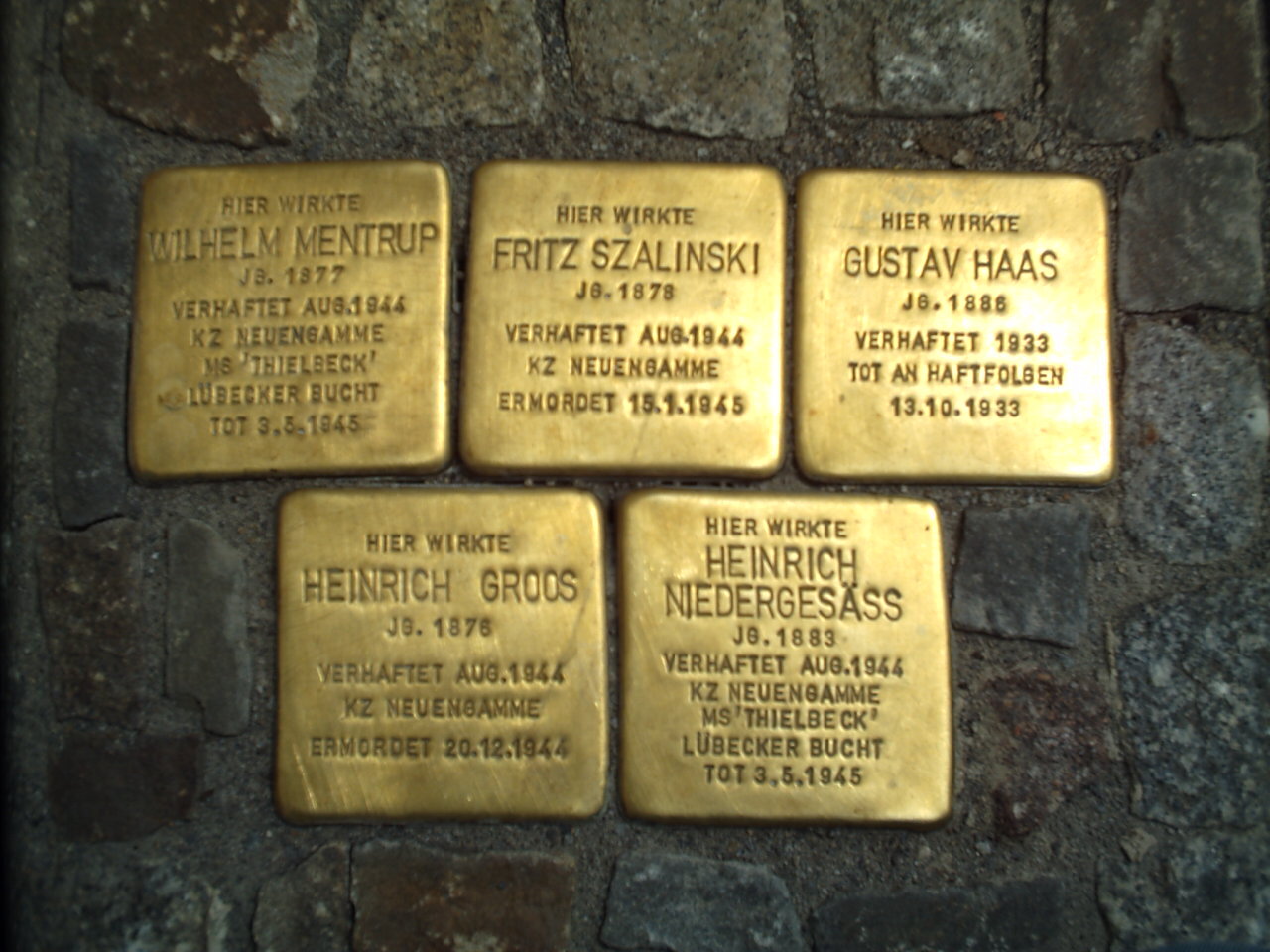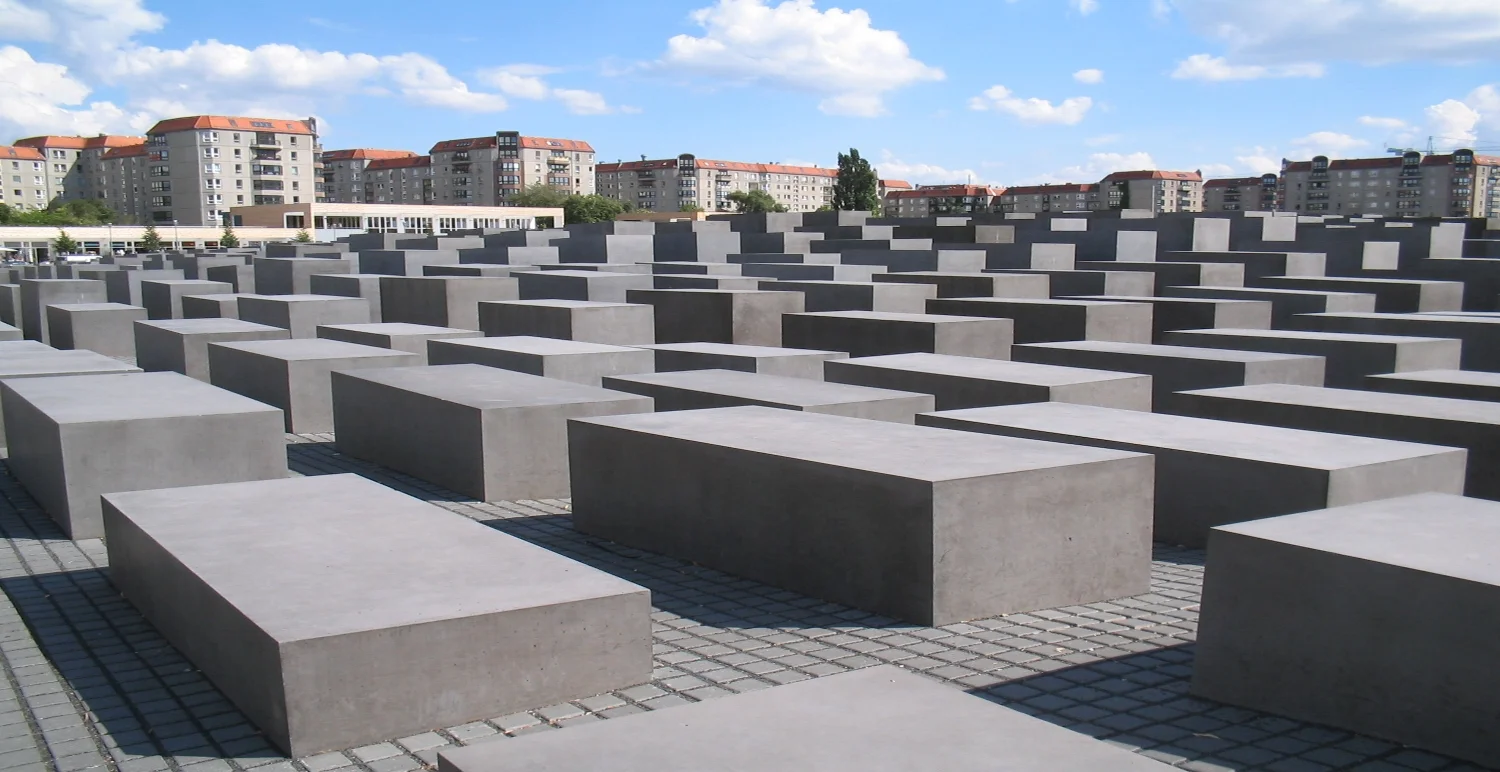Germany: Memory and Memorials
Only a short drive from my apartment in Nürnberg, roughly fifteen minutes away, stands the Reichsparteitagsgelände (Reich Party Congress Grounds) where from 1933 to 1938 Hitler and the Nazi party held their rallies. I find it a profoundly unsettling place to visit, for obvious reasons. It was designed and built to celebrate the Nazi ideology and was the setting in 1935 for the announcement of the Nuremburg laws, excluding German Jews from citizenship. Standing on the Zepplinfeld, the remaining greying stones, adorned with unkempt grass and weeds, still resonate with historical significance. Although the towers were taken down decades ago the monolithic Zeppelinhaupttribüne is instantly recognisable as the structure shown in grainy black and white footage having its giant swastika blown to pieces by victorious allied troops.
Not everything was destroyed in such a manner. Today, much of the former ideological centre of National Socialism has been repurposed. The Kongresshalle, just a few meters away from the Zepplinfeld has been turned into the Dokumentationszentrum Reichsparteitagsgelände (Documentation Centre Nazi Party Rallying Grounds) containing a permanent exhibition on the causes and consequences of National Socialism and also houses the Education Forum that is used to further educate school children and adults on the themes of the main exhibition. The stadium that was to be the focal point of the Hitler Youth was transformed and repurposed as the home of FC Nürnberg who continue to play their home games in the renamed Frankenstadion. The Zepplinfeld is frequently used as the location for concerts and annually hosts Rock im Park, one of Germany’s largest open-air music festivals and is also the location of the Norisring for car and motorbike street racing. It is just one of many examples of how Germany uses the monuments and architecture of the Nazi era.
The Reichsparteitagsgelände has been on my mind this week following the toppling of the Edward Colston statue in Bristol and its unceremonious disposal in the harbour by Black Lives Matter protesters. This surprisingly straightforward act sent shockwaves through Britain and sparked contentious discussions on how British history is viewed and directly questioned the British national memory. Although much of the discussion focused on the act itself, the following days have seen arguments for and against symbols of historical British oppression and has led to the British government to erect protective cladding around statues of Winston Churchill and the Cenotaph in London. How real the threat against these monuments is seems unclear, but it speaks to the rising tensions over how history is presented in public spaces and in the wider context of British historical understanding. It’s no surprise then, as my former home grapples with the darker elements of its past, that I would look for lessons from my new home.
Germany has those lessons to offer, but they are neither easy, nor are they necessarily linear. What Germany does seem to have achieved, at some level, is an understanding that history is more than just the events of the past. There seems a deeply ingrained understanding that the past is more than just the events of decades or centuries before, but that it is a very real and very active ongoing discussion. This idea is encapsulated in the term Vergangenheitsbewältigung which means "public debate within a country on a problematic period of its recent history” a term that, although not coined by the 1968 West German student movement, was one deeply connected to that moment and the push to confront the Nazi past. This idea of problematic history as a public discussion is very much alive in the 21st century, only last year Angela Merkel, at the 10th anniversary of the Auschwitz-Birkenau Foundation, said "Remembering the crimes... is a responsibility which never ends. It belongs inseparably to our country," continuing “To be aware of this responsibility is part of our national identity, our self-understanding as an enlightened and free society... a democracy.”
Confronting the past is not only understood as a public debate, but also a responsibility to remember. Vergangenheitsbewältigung permeates education, with historical teaching only one aspect of the process. Much of the German school curriculum after class 5 (15-16 year olds), whether German literature, religious education or politics classes, feature this ongoing discussion. Survivors are frequently asked to join groups studying National Socialism, while school trips are regularly made to concentration camps. Vergangenheitsbewältigung is part, through the introduction of Stolpersteine in 1992, of the actual streets too. Stolpersteine (Stumbling Blocks) are small cobble stone sized brass plaques that can be literally stumbled across throughout Germany. Each one marks a victim of the Nazi regime and are placed outside their last known residence.
Could the UK adopt the idea of Vergangenheitsbewältigung and would it help? Possibly, but there are a number of differences between the British and German situations. Firstly, the British imperial past and the Holocaust are not comparable events, and it does no one, least of all the victims, any benefit to equate the two. Secondly, the process of Germany confronting the past was done generation by generation, each asking their own questions of the generation that fought the war. How can Britain confront an Edward Colston or a Cecil Rhodes when they have been dead for centuries? That is an important question that needs to be answered, and it will take knowledge of the past, as much as it will take courage to have that discussion. Yet the discussion needs to be had. A major part of Vergangenheitsbewältigung is the idea of learning to live with the past, but unlike Germany, there is no agreement about Britain about what the past is. There is too much contested ground, often from people with only a passing understanding of British history. Binary thinking, that perceives the British history as a collection of stories about “good guys” and “bad guys” is far too prevalent. That desperately needs to change. Serious discussions about the realities of the history can only occur when there is a better knowledge of that history. The politics or emotions of the moment will distract the discussion, a firm grounding in fact can prevent this distraction from derailing the whole process.
There is a common British trope that comes up whenever I find myself in a discussion about Germany, the idea that Germans today carry with them a national guilt or shame. I may have at one time believed this myself, but after living here I have come to this conclusion: Germans aren’t guilty, they just know what happened.










